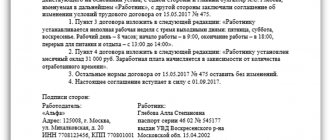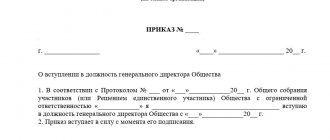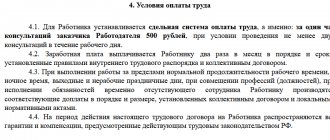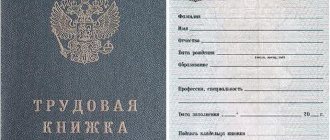Law on the possibility of remote work
An employment contract can only be signed with a group of workers who are able to do work remotely. For example, via the Internet. The form of a remote employment contract necessarily requires a detailed description of the characteristics of an employee working outside the office:
- A person performs functions outside the organized workplace by the employer.
- The Internet is used for work and interaction between employer and employee.
An employment contract with a remote worker assumes that he carries out his activities in a place other than that organized and controlled by the employer. Labor legislation allows two types of work:
- Home-based, in which the employee’s place of activity is defined as the address of registration (residence).
- Remote, when the employee has the right to determine the place of activity himself.
When is the transition planned?
In 2020, a bill will be developed to introduce this form of employment contract with an electronic signature. The draft law is currently undergoing finalization. The law will come into force no earlier than 2020.
Will there still be a paper version?
Considering that the system for maintaining an archive of such documents has not yet been thought out and in order to avoid any errors in registration, at first the simultaneous conclusion of an electronic and paper employment contract will be practiced.
Does a similar practice exist in foreign countries?
It is currently not possible to prepare such a personnel document with a remote worker living abroad, since our legislation is valid in our country.
The electronic form of such a document is not used abroad, since the employment contract itself, concluded in writing, has greater legal significance than the legislative documents themselves.
The main goal of introducing a draft electronic labor contract in the Russian Federation is to introduce into the legal field employees who carried out their work illegally.
Remote work can also become the official place of main work. And the electronic form will protect the rights of workers and provide guarantees to employers hiring them.
Attention!
- Due to frequent changes in legislation, information sometimes becomes outdated faster than we can update it on the website.
- All cases are very individual and depend on many factors. Basic information does not guarantee a solution to your specific problems.
That's why FREE expert consultants work for you around the clock!
- via the form (below), or via online chat
- Call the hotline:
- Moscow and the Region
- St. Petersburg and region
- Regions - 8 (800) 222-69-48
APPLICATIONS AND CALLS ARE ACCEPTED 24/7 and 7 days a week.
Employment contract
Commonalities between home-based and remote work
Home-based and remote work have common features:
- Cooperation between a remote employee and an employer is based on a set of articles of the Code of the Russian Federation, taking into account the features of remote work.
- An employee is considered to be at the workplace without being in the employer's office.
- The working time of a remote employee is not controlled. He himself determines the periods of work and rest, based on his volume of work, which should allow him to comply with the labor standards established by the code.
- Work tools can belong to both the employee and the employer.
- The peculiarities of concluding an employment contract with remote workers suggest that it clearly states the procedure for interaction in transferring the task and obtaining results.
- The employment contract can include special grounds for its termination.
Differences between types of remote work
There are a number of differences between types of remote activities (home-based and remote):
- A home worker is tied to his place of residence as the place where work is performed. A remote employee can work in a space convenient for him.
- A homeworker is allowed to use the labor of other people. An employee working remotely performs work individually.
- A home worker creates material objects. Remote activities create intellectual products.
- Working as a homeworker involves direct interaction with the employer. A remote employee interacts via telephone and the Internet.
Remote work part-time
Labor legislation of the Russian Federation allows part-time workers to work remotely. When concluding a remote part-time employment contract, it is worth remembering the rules for part-time work:
- Working time is calculated as half the duration of a regular working day, and the amount of work, accordingly, will be half that of an ordinary worker.
- Leave is granted at the main place of work and part-time work at the same time.
- Termination of a remote employment contract is possible with two weeks notice.
- When working part-time, social guarantees are not provided to employees operating in the Far North, or to people combining study and work.
A sample part-time remote employment contract is the same as a sample simple contract. You can find it below.
It includes: title of the document, date of signing, general provisions, subject of the employment contract. A legally important clause on the obligations of the parties to the legal relationship (employee and employer) must be included in the remote work contract.
An employment contract, as a rule, must stipulate the working hours, because the employer has almost no direct control over the work of his remote subordinate employee during work activities.
The contract specifies the legal and financial responsibility of the parties to the legal relationship to each other. Sometimes the contract stipulates reimbursement of employee expenses (telephone communications, Internet, postal services). The document also indicates the conditions of social insurance and employee guarantees.
Special conditions in the contract inherent in remote work may be taken into account (exchange of documents via e-mail, failure to enter records of work activity in the work book by agreement of the parties to the contract).
At the end of the document, addresses (places of registration), details (OGRN, INN) and contact information of the parties to the legal relationship are written down. The agreement is signed by both parties in two copies for the employee and the employer.
What did the deputies come up with?
From October 1, 2019, Federal Law No. 34-F3 of March 18, 2019 will come into force, which introduces into civil legislation the possibility of concluding transactions using electronic documents. The legislator stipulated that legally significant provisions can be drawn up in any form, on any material media, if the parties agree. According to State Duma deputies, similar rules should be provided for in the labor sphere. For this purpose, bill No. 736455-7 was developed, which slightly changes and supplements the Labor Code of the Russian Federation.
In particular, it is proposed to introduce an article entitled “General provisions on legally significant communications of the parties to an employment contract”, according to which:
Statements, notifications, appeals, permissions, demands or other legally significant messages of the parties to the employment contract can be transmitted both in the personal presence of the parties to the employment contract (reading under signature), and by sending a document by mail or by sending a document or other information using electronic or other technical means that allow the content of the message to be reproduced unchanged on a tangible medium.
At the same time, it is added that in all cases where the law requires the written form of a legally significant message, it is allowed to compose and send such messages using electronic or other technical means. The new rule will also work in the case where familiarization with an employee can only be carried out in his personal presence (under signature).
As for the delivery of such messages, deputies propose to include the following norms in the Labor Code of the Russian Federation:
Legally significant messages with which labor legislation or an employment contract relate the emergence, change or termination of employment relationships entail such consequences for the recipient of the corresponding message from the moment of its delivery. The message is also considered delivered in cases where it was received by the party to the employment contract to whom it was sent, but due to circumstances depending on it, was not delivered or the party to the employment contract did not familiarize itself with it.
In fact, the parliamentary initiative can lead to the fact that the exchange of any documents, statements and notifications between the employer and employee will be transferred to electronic format. The parties themselves will be able to agree on exactly how to “communicate”: by email, by phone using SMS, via messages on Skype, WhatsApp or another service.
And although there are many advantages for both the employee and the employer, it is stipulated that the employee can refuse such online communication. In this case, you will need to maintain contact with him in the traditional way - ask him to sign the document in person, send notifications on paper, etc.
Deputies insist that the new rules come into effect as early as October 1, 2019. But it is still difficult to imagine how the employees themselves will react to this format of interaction, especially if they are no longer young and do not accept such methods of communication or do not use modern gadgets. In addition, employers will need to develop and approve additional documentation to implement the ability to send legally relevant communications to employees via telephone and Internet. But in some organizations this will still significantly simplify the work of HR officers.
Features of document preparation
Hiring an employee to work remotely does not exempt the employer from exchanging documents for the purpose of:
- sending the employee’s personal data;
- provision by the employee of original documents for employment and payment calculations (for example, comparison of the employee’s signature in the passport and in the sample employment contract);
- familiarization of the employee with company documents.
The hiring date and probationary period are drawn up as in a regular sample employment contract. The remote worker indicates his address in the place of work column.
The employee must send a notification letter via Russian Post to all documents that require submission in original form. The following exchange options are possible:
- via email;
- using documents signed with an electronic signature.
Electronic personnel document management
Finally, legislators plan to conduct from 01/01/2020 to 12/31/2020 an experiment on maintaining electronic personnel document flow without duplicating it on paper. The corresponding bill has not yet been submitted to the State Duma - it is posted on the federal portal regulation.gov.ru (project ID - 02/04/02-19/00088427).
In essence, this project proposes to work out the same mechanisms as the previous bill No. 736455-7. But the experiment has significant differences.
Firstly, only individual employers will participate in it - their list must be approved by the Government of the Russian Federation. Although consent to participate is required from both employers and their employees (the latter will be able to refuse to participate in the experiment by notifying their employer in writing).
Secondly, personnel document flow will be carried out only in electronic form - it is not expected to duplicate it on paper. At the same time, employers will have to ensure the safety of electronic documents during archival storage periods.
As stated in Part 3 of Art. 2 of the bill, employers will independently determine the types of documents issued electronically. The results of the first experiment (conducted over six months on the basis of Order of the Ministry of Labor of the Russian Federation dated March 26, 2018 No. 194) give an idea of the areas in which such work can be carried out. For example it could be:
- registration of employment, concluding an employment contract, signing an employment order;
- termination of an employment contract at the initiative of the employee, approval of a resignation letter, signing of a dismissal order;
- familiarization of employees with adopted local regulations directly related to their work activities;
- notifying employees about the components of wages;
- accounting of planned and actually worked time;
- exchange of electronic sick leave and payments for them;
- familiarization with the vacation schedule and notification of the start time of the vacation;
- registration of business trips;
- obtaining consent to engage in overtime work and work on weekends and holidays.
It is planned that organizations will maintain electronic documents in their information systems or use the service of the information and analytical system “All-Russian vacancy database “Work in Russia”. In the first case, enhanced qualified electronic signatures of the employer and employee will be required, and the costs of acquiring the employee’s electronic signature will be borne by the employer. In the second case, the employer will also need a strengthened electronic signature, but the employee will only need a simple electronic signature confirmed in the Unified Identification of Authorities. All this concerns the conclusion or amendment of employment, student contracts, and agreements on financial liability. In other cases, electronic documents that require signature by the employer must be certified by his enhanced qualified electronic signature.
Electronic interaction
Preliminary agreement on the specifics of a remote employment contract takes place via the Internet. The approved version of the contract is signed in two versions in paper form and sent by the employer to the employee within three days by letter with notification. An option is possible in which the employee receives the contract form electronically, enters his personal data on it, signs it with a qualified electronic signature and sends it back to the employer.
Documents required for employment can be sent to the employer electronically. If this is not enough, then send the documents certified by a notary by mail. It is possible that the employer may require the employee to be present in person at the time of signing and terminating the contract. In this case, the employee brings all the required documents with him.
A non-standard procedure has been established for two documents for remote workers:
- SNILS is issued by the remote worker personally.
- By agreement of the parties, an entry in the personal book may not be made. If an employee requires making records of activities, he sends his personal book to the employer via Russian Post by registered mail. The basis for confirmation of experience will be a contract.
Through the Internet, an employee can familiarize himself with all the internal regulations of the company that he needs to directly perform the tasks assigned to him. A handwritten signature on familiarization can be replaced by a qualified electronic one. In the same labor regime, in compliance with the deadlines established by law, the company provides the employee with documents related to his direct activities: an agreement to his employment contract, a notice of annual paid leave, a notice of a significant change in the terms of his employment contract, orders.
How to specify remote work in an employment contract in terms of remote access to documents? You can write this in a separate paragraph or include it in the paragraph on general provisions.
Remote work and employment contract (sample 2020)
Externally, the mutual expression of will of the parties is expressed by the form of an employment contract on remote work, drawn up in an individual document. In structure, the form of the contract consists of several components that are in an orderly relationship, and the content is determined by the parties concluding it. The main condition for its content is the presence of all attributes so that they are recorded in it in writing.
It is considered concluded only when the parties have agreed on all its points.
For those wishing to work remotely, rules have been introduced to simplify the procedure for signing an employment contract. In accordance with the instructions s. 312.2 of the Labor Code of the Russian Federation, its signing can be carried out by exchanging the agreement in electronic form. If the employee wishes, he has the right to receive a paper version from the employer, who must send the contract via registered mail with notification.
Prerequisites
An employment contract drawn up with an employee who will work remotely must contain information about the subject of the contract, its terms, legal addresses and bank details of the parties, signatures of the persons concluding it, and the date of signing. The employment contract is sealed with the seal of the enterprise.
By mutual agreement of the persons who have entered into an employment contract regarding remote work, the following issues must be resolved:
- entries in the work book about employment;
- method of using technical equipment and devices to fulfill technical specifications;
- the deadline for submitting the work report and the method for sending it;
- systems for reimbursement of costs related to remote work, guarantees and compensations that are due to all employees in accordance with the standards of the Labor Code and the current law on social insurance.
The contract makes a note that the employee will perform his functional duties remotely, that is, outside the employer’s location. It also indicates the length of time allotted for performing the work, which is 40 hours a week, weekends, and the length of the working day.
If the workplace, the purchase of office equipment, a computer, and the provision of telephone and Internet connections are provided by the employee himself, then under the contract the employer pays compensation for the funds spent. The amount of compensation and payment terms must be established and noted in the contract. But the employer can provide everything necessary for work himself, so this part of the contract is important and its drafting requires attention.
The remote worker’s compliance with the Rules governing internal labor regulations must be separately noted in the contract.
The employment contract must specify the deadline and method for submitting work results via email.
Watch also the video about regulating the labor of remote workers
Duration and possibility of extension
According to the instructions of Art. 72 of the Labor Code of the Russian Federation, persons who have entered into an employment contract have the right to change the conditions that were stipulated in it by agreement drawn up in writing.
Moreover, the changes also apply to the duration of the contract, regardless of the type of contract, so the parties during its validity can enter into an agreement on changes to the term and conclude it for a new term.
But it is necessary to take into account that the contract is valid for 5 years, but no more.
See a sample employment contract for remote work here:
EMPLOYMENT AGREEMENT ON REMOTE WORK
Differences between a distance contract and a regular contract
An employment contract with a remote employee must be concluded. However, the conditions and possibilities for remote work are stipulated by the existence of differences between such a document and a contract with a regular employee.
In a contract with a remote worker:
- Mandatory indication of the remote nature of the work. The location of the employer's office is indicated as the place of conclusion of the contract.
- The presence of a condition about the absence of an entry in the book.
- Indication of a specific operating mode.
- Inclusion of a condition on the need for an electronic signature for the employee.
- Indicating the procedure for exchanging work requirements and its results.
- Inclusion of additional employer responsibilities.
- Reflection of the conditions of dismissal, supplementing the list of reasons contained in the legislation, if there is a decision to include them in the text of the document.
A fixed-term remote employment contract is concluded like a regular employment contract, with a termination date or condition.
Rights and responsibilities of a remote worker
The rights and obligations of the parties to a contract with a remote employee are not fundamentally different from the clauses of a regular employment contract. A distance contract usually contains several additional clauses:
- On the employee’s obligation to use software and data protection tools of a technical nature and other means in his work. The need for this lies in the desire of the employer to maintain a trade secret containing information about any scientific achievement.
- If the employer needs to control a remote employee, then it is necessary to record the timing of the employee’s contact with him using available means of communication (telephone, Internet).
- On the employee’s responsibilities to provide reporting data in accordance with the established procedure and deadlines for submitting reports on work activity. The more specific the conditions are, the easier it is to ask the employee for them and the fewer controversial situations will arise in the future.
Since the relationship with the employer, the formation of tasks and goals, the transfer of the product of activity or reporting forms in many cases occurs through a virtual network, the employment contract for remote work should detail the format of communication with the employer and the timing and format of how the other party will confirm receipt of information . This could be a response message, SMS notification, or phone call.
The employer’s obligations, in addition to clauses on compliance with the conditions for carrying out work in our country, payment of earnings on time, contain in the distance contract the conditions for reimbursing the employee for costs associated with the performance of labor duties (costs for mobile communications and the Internet). It is worth paying attention to the employer’s responsibilities in the field of labor protection. In relation to a remote employee, the company must familiarize him with the rules for working with the employer’s technological, software equipment and facilities.
A remote worker, as a rule, sets his own working hours and rest time. The employer may insist and demand that the employee devote at least such and such a number of hours per working day to his professional activities.
Why do you need to spell out special clauses of a distance contract so carefully and in detail, such as the mode for submitting reporting forms, the format of communication with the employer? Violation of the terms of cooperation with an employee working remotely may become grounds for termination of the employment relationship. The labor legislation of our country allows special conditions for the dismissal of an employee at the initiative of the employer to be specified in the employment contract for remote work: if the employee submitted a report twice with a gross violation of reporting deadlines, he does not contact the employer. These are completely legal grounds for dismissing a remote worker if this is specified in the contract.
Electronic work books
Three bills are devoted to the transition from paper work books to a digital format. The first (introduced to the State Duma under number 748684-7) describes the very mechanism for introducing and using an electronic book, which will become known as information on labor activity .
According to the new art. 66.1 of the Labor Code of the Russian Federation (as amended by draft No. 748684-7) this will be the basic information about the employee’s work activity and length of service, which the employer must submit to the information system of the Pension Fund of the Russian Federation. This includes information about the employee, the work he performs, transfers to another permanent job, dismissal, as well as grounds for termination of the employment contract. That is, the nature of the information entered into the paper work book now will not change in the future. There is no need to store and transmit electronically only records of the employee’s education and incentives received.
The form for the employer to submit information about labor activity to the information system will be approved by the Pension Fund of the Russian Federation in agreement with the Ministry of Labor.
It is planned to switch to electronic work books on 01/01/2021. Then paper books will remain only with employees who, before the specified date, submit a corresponding written application to the employer. Those who do not do this will be given paper books, and the employer will be released from responsibility for storing them. For workers who are employed for the first time after 01/01/2021, a paper work book will not be created at all - everything is planned to be completed electronically.
How can an employee obtain information about his work activities? For this purpose Art. 66.1 of the Labor Code of the Russian Federation (as amended by draft No. 748684-7) provides for several methods.
One of them is to contact the employer at your last place of work and obtain information for the period of work with him. To do this, the employee will have to submit an application in paper or electronic form and indicate in what form the employer needs to send the information - on paper, duly certified, or in the form of an electronic document signed with an enhanced qualified electronic signature (if the employer has one) . The form of information provided to the employee from the information system of the Pension Fund of the Russian Federation will be approved by the Ministry of Labor in agreement with the Pension Fund of the Russian Federation.
In this regard, it is planned to establish a new obligation for organizations - to provide employees with information about their work activities. During the period of his work, this will need to be done no later than three working days from the date of submission of the application, and in case of dismissal - on the day of termination of the employment contract.
There are other options for obtaining information:
- at the MFC, it is planned to issue information on paper, duly certified;
- in the Pension Fund of the Russian Federation, certified information will be provided on paper or in the form of an electronic document signed with an enhanced qualified electronic signature;
- Through the public services portal, information can be obtained in the form of an electronic document signed with an enhanced qualified electronic signature.
We talk about how to keep personnel records now and what will change in work books in the “Clerk” online course on protection from labor audits.
The course costs 7450 rubles.
Watch the video, read the notes, take tests and the final assignment, and at the end you will receive a personalized certificate from the Klerk.ru Online Learning Center.
It is assumed that the amendments proposed by the bill will come into force on 01/01/2020 and employers will have a year to prepare for the changes . During this time you will need to do the following:
- adopt or adjust local regulations (if necessary) taking into account the opinion of the elected body of the primary trade union organization (if any);
- make changes (if necessary) to agreements and collective agreements;
- ensure technical readiness for transmitting information about labor activity in electronic form to the information system of the Pension Fund of the Russian Federation;
- notify employees in writing about the transition to electronic work books, as well as the employee’s right to choose between a paper and electronic work book and the consequences of the choice (this right is exercised by submitting an application to the employer that he should keep a paper work book).
The transfer of information about labor activity to the information system of the Pension Fund of the Russian Federation may become mandatory. When organizing internal personnel document flow, the employer himself will choose between “digital” and paper.
However, despite the fact that they plan to give organizations a year to rebuild their internal processes, there will be no time to build interaction with the Pension Fund of the Russian Federation in a new format. Employers will be required to submit information about the work activities of employees to its information system - this is stated in the second bill submitted to the State Duma under number 748744-7. A citizen’s individual personal account, which is maintained in the compulsory pension insurance system, will be supplemented with a section “Information on labor activity,” containing information about the place of work, the work performed and its periods (including details of the employer’s documents, which are the basis for formalizing the employment relationship).
Information will need to be submitted monthly - no later than the 15th day of the month following the reporting month. And from 01/01/2021 one more requirement will be added. When hiring or dismissing an employee, information about him will have to be submitted no later than the working day following the day of issuance of the corresponding order-basis (additional clause 2.4 of Article 11 of the Federal Law of 01.04.1996 No. 27-FZ “On individual (personalized) accounting in the compulsory pension insurance system" as amended by project No. 748744-7).
If the number of employees for the previous reporting month is or exceeds 25 people, the employer will have to provide information in the form of an electronic document and certify it with an enhanced qualified electronic signature. Organizations with fewer than 25 employees will be able to submit information either on paper or electronically.
It is assumed that the Pension Fund of the Russian Federation will monitor this process: they are going to give the agency the authority to transfer information about violations to Rostrud, and it, in turn, will be able to bring violators to administrative responsibility. As stated in the third bill (No. 748758-7), Art. 5.27 of the Code of Administrative Offenses of the Russian Federation is planned to be supplemented with Part 1.1. According to it, the employer's officials will be held accountable in the form of a warning for repeated violation of deadlines for submitting information about work activity or for submitting incomplete and (or) unreliable information. In this case, repeated misconduct means the employer committing the above actions two or more times during the year.
If the package of bills is adopted by the end of 2020, they will begin to be held accountable from 01/01/2020.
Termination of a distance contract
General norms of labor legislation and additional grounds specified in the distance contract apply when terminating the contract.
It should be remembered when drawing up an employment contract for remote work that special conditions for dismissal:
- should not worsen the position of the remote worker;
- be discriminatory on the basis of gender, religion or any other basis;
- must be related to the employee’s job responsibilities;
- have an unambiguous interpretation and documentary evidence.
The dismissal of an employee performing remote work is formalized by a dismissal order indicating the specific reason for termination of the employment contract. If electronic document management has been established with the employee, then on the last day of work (the day of termination of the contract), the employer sends him a copy of the order by email and duplicates the sending by Russian Post by letter.
Remote work abroad
The decision to connect your life with remote work is not easy. You need to weigh all the pros and cons, but the most important thing is to find out for yourself what you want to get from such work and whether you are able to work remotely. Working at a distance in a foreign company is reminiscent of the most ordinary workdays in your own city: the same working hours and guaranteed income, but there are also important differences. An employer will not track how much time you spend at work, how often you take breaks, or how long you take off from work. Remote work requires a high level of responsibility and self-organization.
The most in demand among employers in the field of remote work today are programmers, mobile application developers, SEO and SMM experts, and designers. And even they, in order to interest foreign employers, must have knowledge and experience above the average level of knowledge of their colleagues in these areas.
It is important to be able to present yourself and format your resume correctly. It must be readable. It needs to be divided into four points:
- list the awards and distinctions you received at specialized competitions (show real achievements);
- describe your work experience (in detail, clearly);
- outline your interests and hobbies (areas of personal development);
- mention the education received (professional knowledge and real practical experience are much more important and visible for an employer looking for a remote employee).
In conclusion, we note once again that you should not abandon the remote form of employment. A remote worker is an employer’s dream, provided that they conscientiously and promptly perform their functions, as they seriously save the employer money on equipping an additional workplace and the costs of creating working conditions. Fruitful and comfortable interaction between employer and employee depends on how detailed the working conditions are in the employment contract.
Where it all began
Officials first announced an electronic labor contract in 2012.
Then the State Duma, on behalf of the government, received a bill proposing to supplement the Labor Code of the Russian Federation with norms on the specifics of regulating the labor of remote workers. It was precisely for such labor relations that it was proposed to extend the electronic document, and it itself was considered as an option to reduce the costs of employers and employees “remotely.” But in 2012, the chapter devoted to the employment of citizens working remotely was approved without such a thing as an electronic labor contract. At that time, the state was just beginning to develop its own information system, and an enhanced qualified signature (Article 5 of the Federal Law of April 6, 2011 No. 63-FZ “On Electronic Signature”) was something special. However, the Labor Code does not prohibit the use of electronic documents. But their use now rather complicates than makes life easier for employers, since all documentation has to be duplicated by mail. In addition, the state has not clarified the rules and procedure for their use, which means that using them is risky, some entrepreneurs believe.











